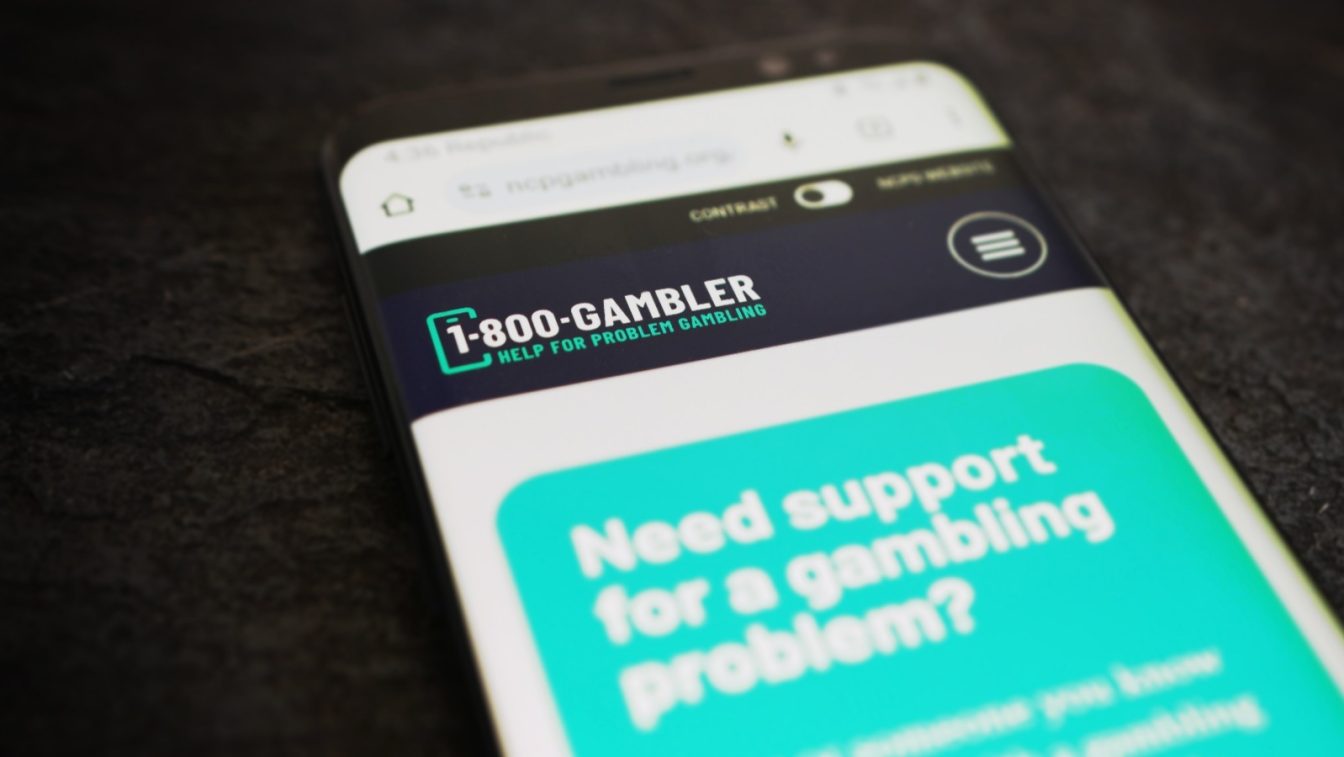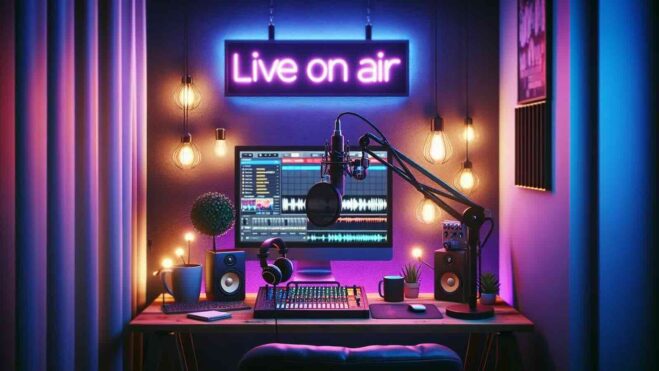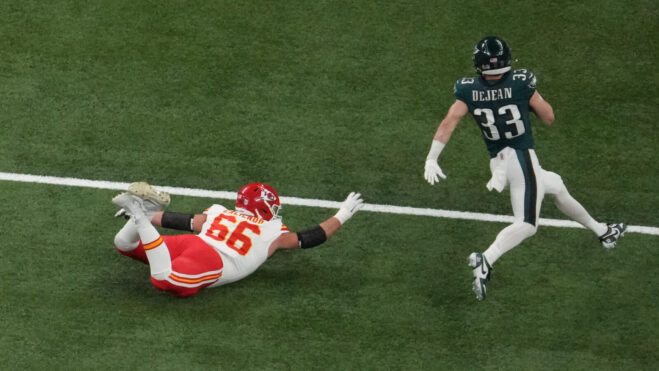1-800-GAMBLER Is In Limbo — Why, And What Could Happen If It Goes Away
Dispute could mean that national problem gambling hotline number may change
6 min

“This is problem gambler self-help line,” the operator said. That’s what you’ll hear when you call 1-800-GAMBLER, the national crisis helpline for gambling addiction. Your call is answered by a real human, not a chat bot, every time you call. Sometimes, in a time of crisis, all people need is someone to listen. And 1-800-GAMBLER provides that 24 hours a day, seven days a week.
But what if that human touch suddenly wasn’t available? The hotline is unique because it’s personal, but the well-known crisis helpline is now in crisis itself due to a legal dispute.
As the number of people who gamble rises, so does the number with gambling addictions. The number of gamblers in the U.S. has exploded since the Professional and Amateur Sports Protection Act was overturned in 2018 and states began adding retail and digital sports betting, previously only readily available only in Nevada. In 2025, more than 40 U.S. jurisdictions offer some form of legal sports betting and seven offer online casino.
Who calls the helpline? Those struggling with problem gambling and their loved ones. A 2024 study by the National Council on Problem Gambling (NCPG) estimated that about 36% of Americans are aware of the number, and 80% of those believe the number exists to help people with gambling addiction.
“I’ve had so many patients tell me that that was their first step to getting help,” UCLA psychiatry professor Dr. Timothy Fong said.
As the co-founder of the UCLA Gambling Studies Program and director of the UCLA Addiction Psychiatry Fellowship, a program that provides clinical training in addiction psychiatry, Fong serves as an expert in gambling addiction.
“I think that’s another way of reframing it, where a lot of folks who are struggling don’t even know what to do,” he said. “Obviously, I think the first step that makes some sense is calling the helpline. That’s how you get started in the journey.”
It’s not just gamblers who call
I called the line in Maryland to see what the experience was like, and I was offered a peer support specialist — someone who has personal experience in gambling addiction to offer guidance and act as a sponsor — as either a gambler or a loved one.
“We do also understand that it’s not just people who struggle with the gambling addiction that it does hurt,” the operator said to me. “People who see their loved one struggling with the gambling addiction, it affects them as well, and so it is extremely important for them to get their own type of support and help through this, to not only help the gambler, but to help them themselves.”
But now, the industry is in a holding pattern to see if the number will remain national.
Here’s the rub
The Council on Compulsive Gambling of New Jersey (CCGNJ) owns the number and leases it to the NCPG for national use. The CCCNJ agreed to a three-year lease at $150,000 per year, in June 2022. The contract expired nearly two months ago, but the NCPG has a three-year renewal option.
The issue in question is if the NCPG agreed to extend the contract. For the time being, the NCPG filed a restraining order in Mercer County, New Jersey, and the court ordered to keep the status quo and keep the number in operation until Sept. 3. As part of the initial agreement, the two sides agreed to arbitration if there was a disconnect. But according to the NCPG complaint, the agency requested a “demand for mediation” to the CCGNJ July 9, and it was denied July 10. The NCPG filed its complaint a day later.
Now that the number may be in jeopardy, many are worried about the potential consequences. “The matter herein is of vital importance and public interest to the public at-large,” the NCPG complaint reads.
Helpline gets people help now
Fong emphasized the importance of instant help and human connection. There are many resources online, he explained, but the key part of a helpline is getting to talk to a person immediately.
“A big thing for me is that the helpline has never gone to an automated voice message or chat bot. It’s always been a human,” Fong said. “And not just a human, but a human who’s trained in gambling resources and information local to that state.”
Although online resources are available, the point of the helpline is for those struggling in the moment to be able to make a connection. In California, the number averages about 300 to 400 calls a month, according to Fong.
“This is meant for folks who are saying, ‘I’m really, really struggling. I don’t feel good. I don’t know what my next step is. I want to stop. I’m not sure I know how.’ Or worse, ‘I’m suicidal, or I’m contemplating doing things I never thought I would have done,’” Fong explained. “That’s the whole point of having a helpline there.”
Before 1-800-GAMBLER went national, each state had its own helpline number that directed customers to a call center in their state. The NCPG decided that with the growth of sports betting and gambling in the U.S., problem gamblers needed one place they could call from anywhere to get help in a time of need. Not all states use it, but most do.
“It is not advantageous for those that need help to see at the bottom of every ad a million different numbers,” problem gambling expert Brianne Doura-Schawohl said. “When you’re in a moment of crisis, you need to know who to call and that they’re going to be there.”
1-800-GAMBLER is everywhere
Doura-Schawohl worked at the NCPG at the time the number was nationalized and was involved in the process. The organization had to go through years of work changing regulations and legislation to allow sports betting operators in every state to push the national number, she explained.
The NCPG and other lobbyists for gambling safety spent years advocating for the national number, which is now a brand in itself. The easy-to-remember number is printed on gambling advertisements, billboards, newsletters, TV commercials, merchandise, lottery tickets, and more.
Now, millions of Americans know the 1-800-GAMBLER number, and it exists as a reference center for problem gambling assistance. When someone calls the national number, they are still directed to a call center in their state — same as before — but with the national number, the customer is not the one who has to remember state-specific resources. The call center will direct them.
Hotline doesn’t leave people hanging
“I live in Virginia. If I call the New York number, they can’t help. They don’t have [local] treatment,” Doura-Schawohl explained. “So NCPG worked with the New Jersey Council, who currently owns the rights to the 1-800-GAMBLER number, and they leased that number. And so from that point forward, 1-800-GAMBLER became the new face of a national helpline.”
The NCPG routes each call made to the national line to a local call center, and in the case there isn’t one, provides backup contact centers to ensure every person who calls gets to talk to someone. It also provides quality control checks and translation services for non-English callers, according to the court lawsuit.
When a caller asks for help, the operator offers different options depending on local resources available in their state — they may find a gambling counselor for the caller to talk through coping strategies, provide information on gamblers anonymous meetings for connection with other addicted gamblers, or refer to teletherapy information and 24/7 meetings, blocking software, and more.
While the conversation may be moving online for the younger generation, the number still gets many calls from parents and partners, Fong said.
Without the national helpline, people will still be able to find resources online or through a state-wide number, but Fong predicts there will most likely be confusion on where to go and who to call in a time of crisis.
What’s next?
For now, the number is still available due to the restraining order, and the NCPG plans to continue its efforts to keep the line active nationally.
“NCPG is committed to delivering the operational and financial resources necessary to maintain the 1-800-GAMBLER network and avoid interruption of helpline access via call, text, and chat to mitigate further risk of gambling-related harm,” NCPG Director of Communications Cait Huble told SBC Americas.
The New Jersey Superior Court in Mercer County granted a restraining order to maintain the status quo only until the dispute is settled in arbitration. The parties now have about three more weeks to find a resolution.
The NCPG is suing for the license to 1-800-GAMBLER for the benefit of the people it helps.
“Absent a temporary restraining order, NCPG shall suffer irreparable harm in the form of damage to infrastructure that it has built for 800-GAMBLER and, more importantly, critical loss of health services to individuals who need them,” the organization wrote in its complaint.
And while preserving the national clearinghouse hotline is important, Doura-Schawohl said even more is needed.
“My hope is that we use this moment in time to realize that as the problem gambling field, we are not speaking the language of the sector we’re trying to be a part of,” Doura-Schawohl said. “We are not speaking the language and in a way that resonates to the young people who are suffering in silence.”





